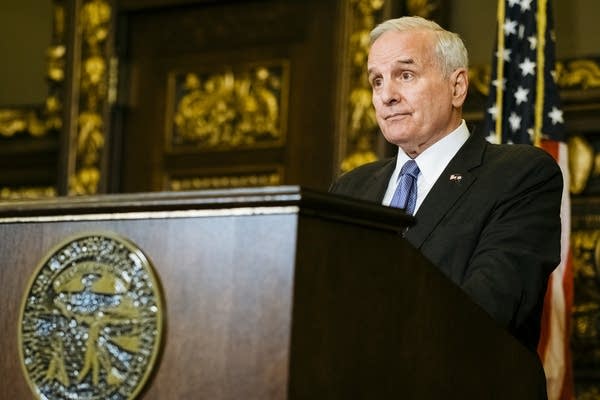Dayton OKs Minn. agency spending but slashes money to run Legislature

Gov. Mark Dayton talks to reporters Friday.
Evan Frost | MPR News file
Go Deeper.
Create an account or log in to save stories.
Like this?
Thanks for liking this story! We have added it to a list of your favorite stories.


